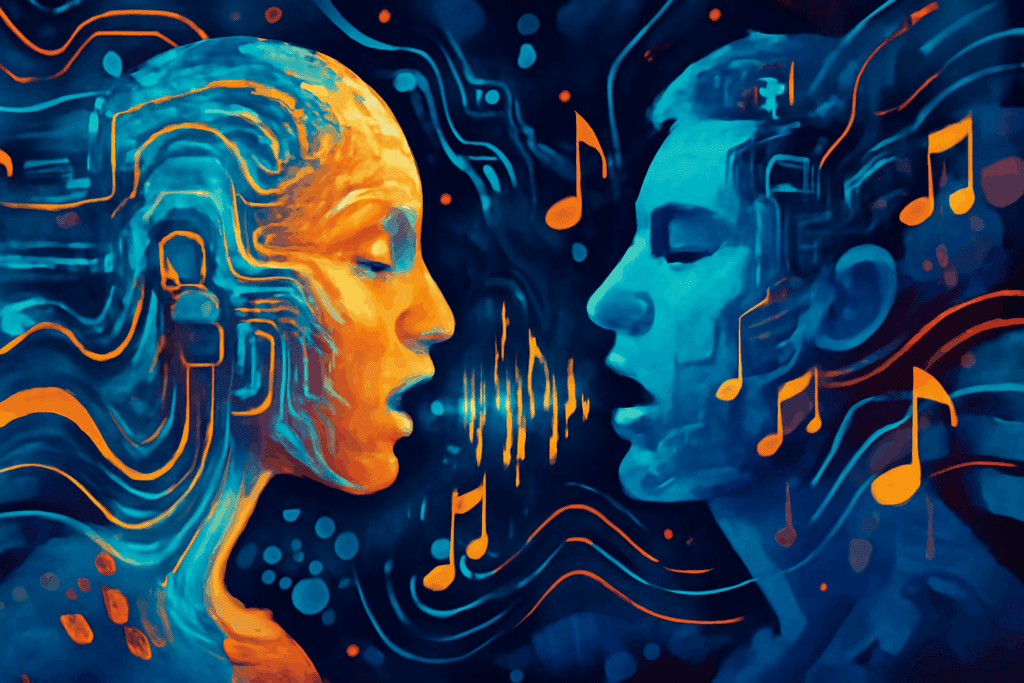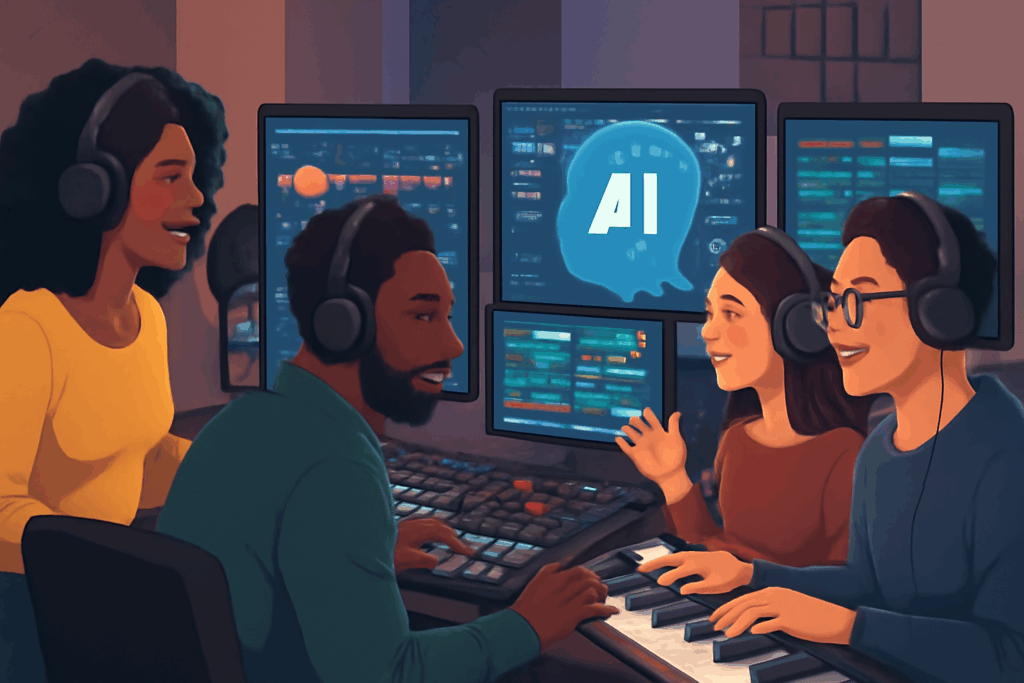The music industry is in the midst of a technological revolution, and at the heart of this transformation are AI acapella tools. These intelligent platforms can isolate vocals, generate synthetic singing, and reimagine voices with uncanny realism, all with a few clicks. Just a decade ago, such feats were time-consuming, often requiring skilled engineers and expensive software. Now, powerful, cloud-based AI makes these workflows accessible to anyone—bedroom producers, indie musicians, and chart-topping artists alike.
But what’s fueling this shift? Increasing affordability, democratization of creativity, and a relentless desire for sonic exploration. The rise of AI-generated acapellas is also sparking passionate debate about artistry, authenticity, and the human touch.
Producers on Reddit and user forums swap stories of time saved, creative breakthroughs, and, yes, the occasional uncanny-valley vocal artifact. Whether you’re a casual hobbyist or a Grammy-winning engineer, AI acapella tools are changing the way we create, collaborate, and imagine music.

The New Frontier: What Are AI Acapella Tools?
AI acapella tools use advanced machine learning algorithms to isolate, generate, or transform vocal tracks from full songs or even create entirely synthetic vocals. They split backing tracks from lead vocals (and other stems) with surprising accuracy, allowing for remixes, covers, or extraction of a singer’s raw performance.
Popular AI Acapella Use Cases:
- Vocal isolation (remove or extract lead vocals)
- Acapella extraction for remixes, sampling, or karaoke
- Voice conversion (turning your voice into another singer’s timbre)
- Generating synthetic singing in any style, language, or mood
- Creative sound design using voices as malleable instruments
Top AI Acapella Tools (2025):
How AI Acapella Tools Transform the Music Production Workflow
1. Time Savings and Workflow Efficiency
“Tasks that once required hours of meticulous editing—like tuning, timing correction, and de-essing—can now be accomplished in minutes,” says a pro audio blogger. AI tools edit imperfections, generate harmonies, or split stems almost instantly, allowing creators to focus on what matters: making music.
On Reddit, one producer shared,
“I loaded a rough demo into Lalal.ai and had clean stems in under five minutes. Used to take me an afternoon with manual EQ and phase cancellation.”
2. Democratizing Music Creation
High-end studio tools are now available to anyone with a laptop. AI acapella platforms lower the barrier to entry:
- No need for elite vocal talent: Songwriters can mock up scratch vocals in any style.
- Indie & bedroom producers: Create polished vocals without expensive studios.
- Accessibility: Those with limited budgets or physical restrictions can participate fully, generating pro-level vocals at home.
3. Endless Creative Possibilities
AI voices can be re-pitched, stretched, harmonized, and even transformed into entirely new timbres.
“Best AI rap lyric generator I’ve found!… The rap song maker feature creates beats that actually slap. My AI rapper tracks are getting thousands of plays!” – Indie producer on AIMakeSong
AI can also produce expressive singing with nuanced breath, vibrato, and dynamic changes:
- Drag in a melody, adjust lyrics, breath, and air, and “the AI starts to render what I’ve written in,” shared one YouTube reviewer.
- Producers experiment with hybrid AI-human duets, synthetic choirs, and vocals styles unbound by human range.

Real-World Experiences: The Human Side of AI Vocals
Reddit and forum communities are a goldmine for firsthand accounts:
- Kits.ai user: “Stock voices are great, expressive and rarely any artifacts… but if you sing out of tune, the AI will be out of tune. They’re only as good as the source material.”
- Lalal.ai advocate: “As someone who’s been using this platform for a considerable time now… accuracy and quality are impressive—the extracted vocals sound clean even for some tough-to-separate tracks.”
- Ultimate Vocal Remover fan: “It’s not great with instruments, but the vocal extraction is a lot cleaner on some songs than other processes I’ve tried. I often use Kits for generating vocals, then UVR for cleanup.”
- Newcomers appreciate the accessibility: “Say goodbye to copyright headaches! The music AI makes sounds so natural… It’s perfect for my podcast intros.”
The Impact: Opportunities and Challenges
Opportunities
Challenges
Data: How Widespread Is AI Adoption?
- Over 60% of musicians report using AI in some capacity.
- AI stem-splitting tools like Lalal.ai have experienced millions of file uploads since launch.
- A survey found that 35% of indie producers rely on AI vocals for demos or final releases (2025, Soundverse.ai blog).
Final Thoughts
AI acapella tools are a double-edged sword—empowering, exhilarating, and controversial. They’ve opened creative doors for anyone with a musical itch, slashed production costs, and fueled an explosion of genre-bending experimentation.
Yet, as with all game-changing technology, their rise has sparked debate about artistry, ethics, and the essence of music itself. On Reddit and beyond, producers are united by their curiosity, fear, and, above all, excitement as they venture into sonic frontiers previously unimaginable.
The message from the trenches? AI acapella tools are not just a passing trend. They are helping shape the next era of music—one where creativity is limited only by your imagination, not your budget or technical skill. As these tools improve, the line between human and machine blurs, making it more crucial than ever to blend technology’s possibilities with the authenticity and emotion that have always been at the heart of music.
FAQs: AI Acapella Tools in Music Production
An AI acapella tool uses machine learning to isolate, generate, or transform vocal tracks in music production.
Yes, these tools are sophisticated enough for commercial-grade work, though quality depends on your source material.
Legal status is still murky; using unauthorized voices can raise intellectual property issues.
Not entirely. While AI can mimic vocals, many producers still prefer the emotional nuance of real singers for critical projects.
Yes. VocalRemover.org, AIMakeSong, and a free version of Lalal.ai offer robust features at no cost.
Quality is track-dependent, but the best tools can deliver impressively clean acapellas, especially with well-mixed source files.
Some platforms support real-time processing, but most excel in a studio context.
Increasingly, yes—especially for songwriting, demos, and genres that embrace new tech.
They may struggle with complex arrangements, noisy recordings, or emulate emotion inconsistently.
Absolutely. Advancements in deep learning mean more natural-sounding, expressive, and versatile tools are just around the corner.

Sandra is a music lover who writes for the Acapella Extractors blog. She enjoys discovering fresh sounds, diving into acapella edits, and sharing tips and stories that inspire fellow music enthusiasts.
